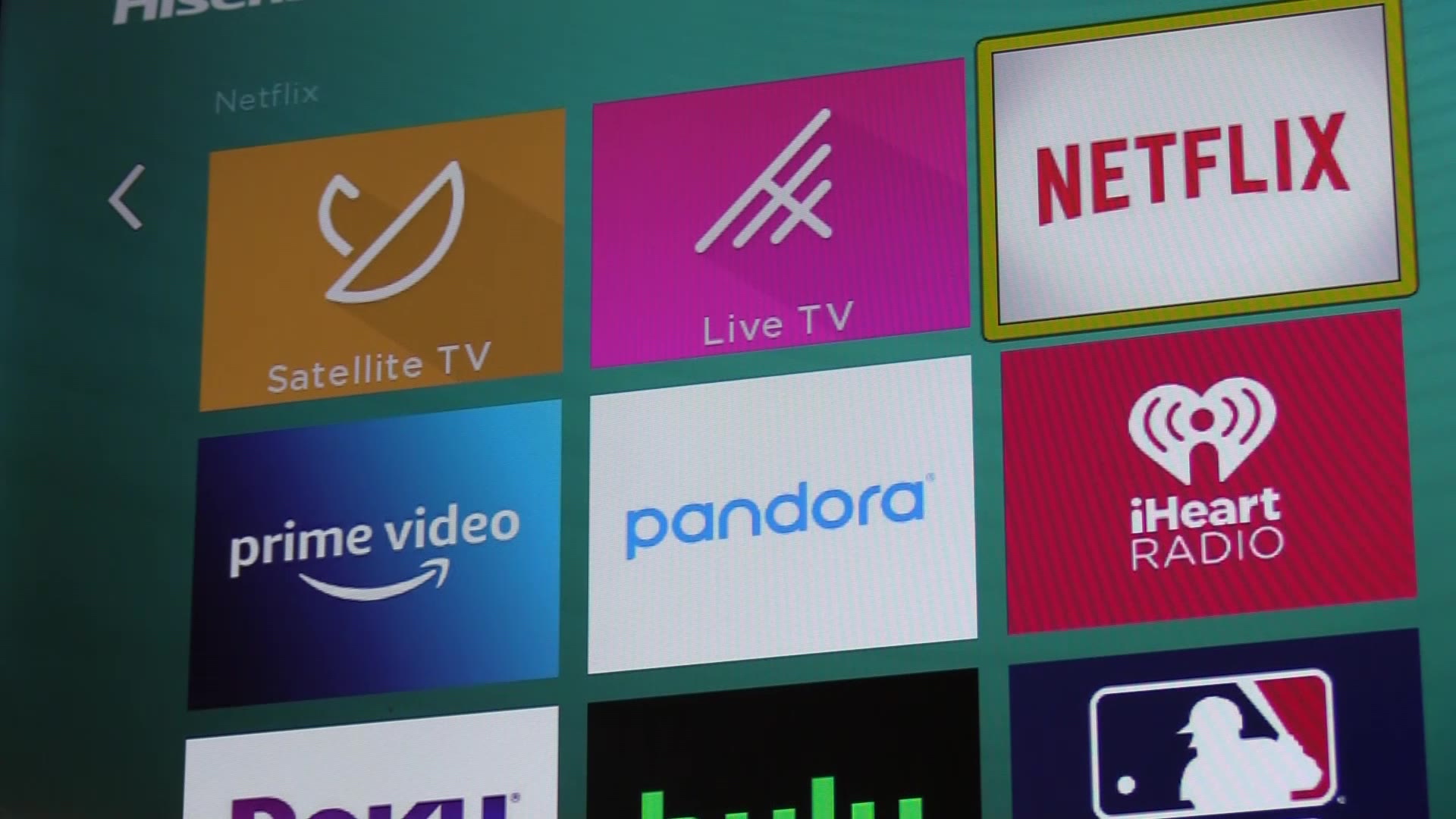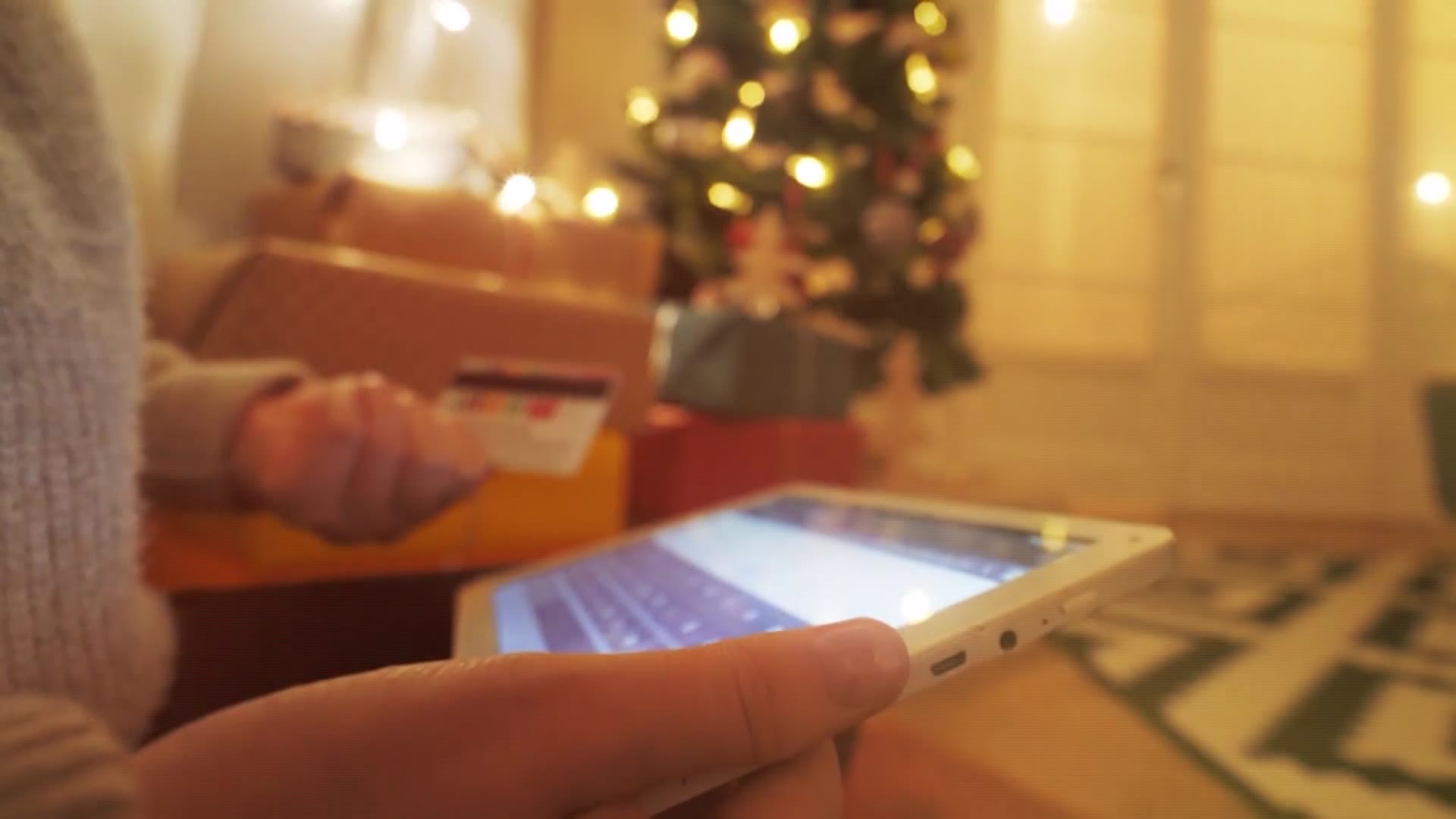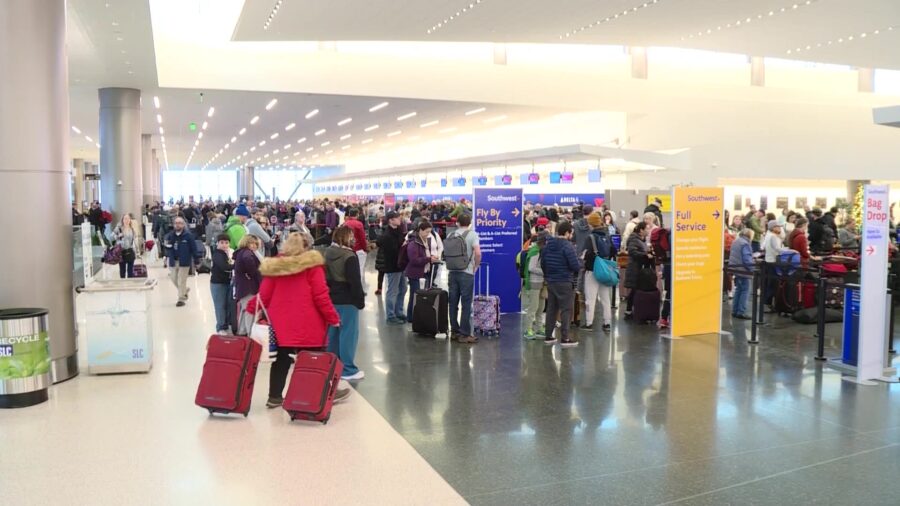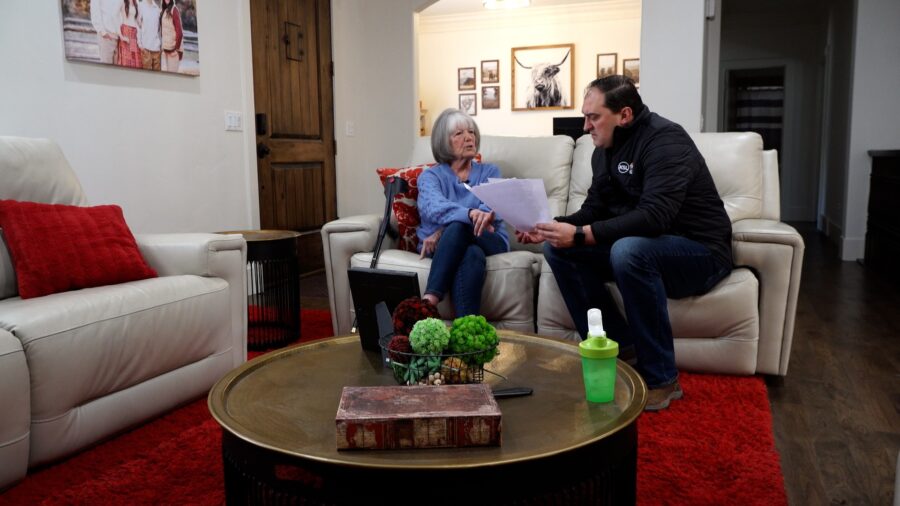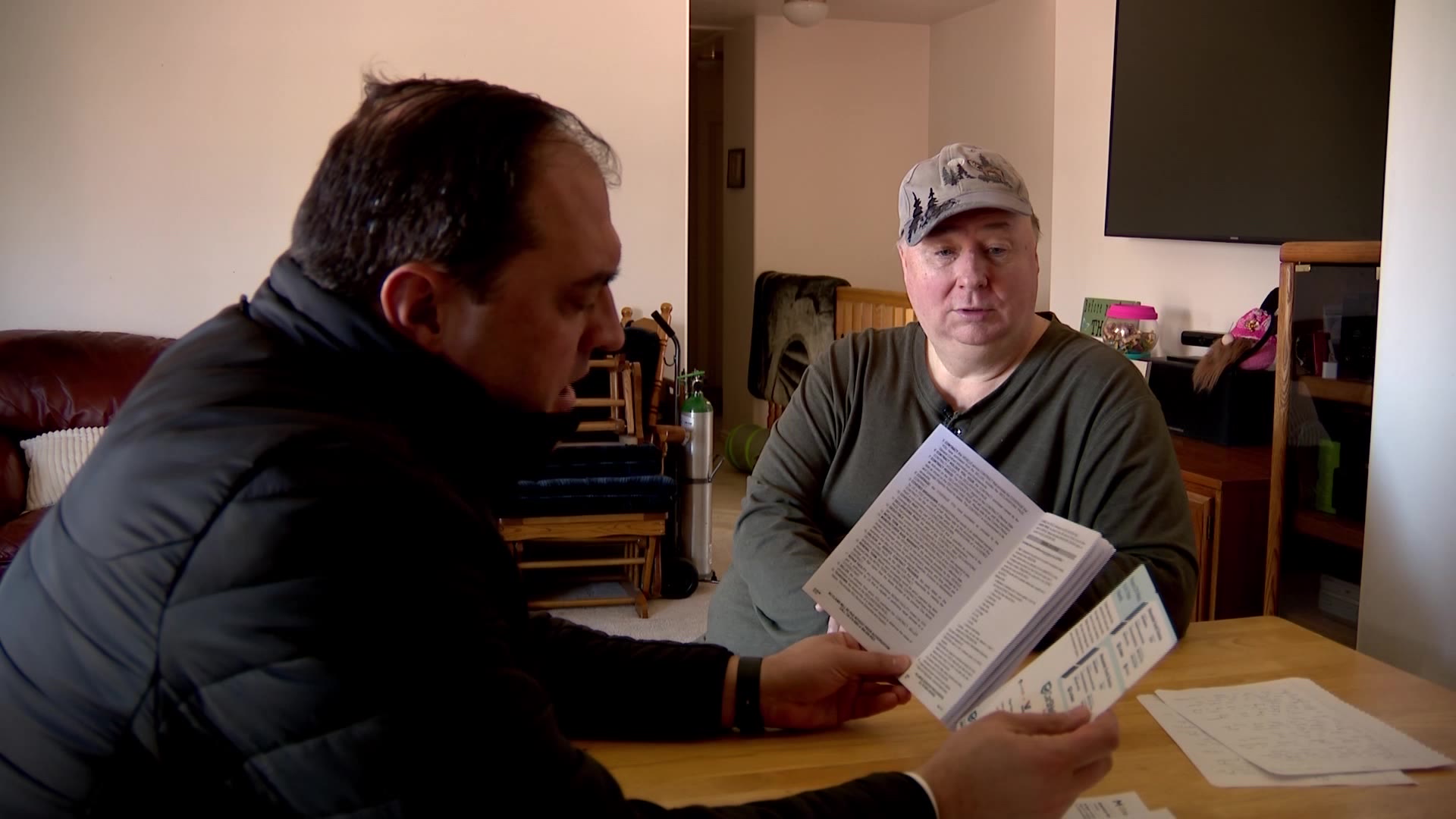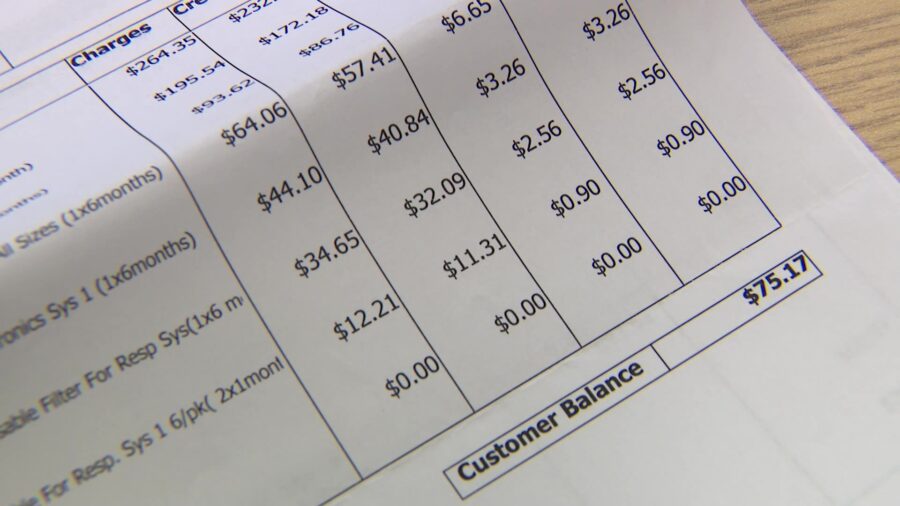Get Gephardt: How to protect yourself from rental car damage you didn’t cause
Jul 13, 2023, 10:49 PM | Updated: 10:50 pm
LEHI, Utah – Spectacular sunsets. Turquoise blue waters. Lush green mountains. For the Prettyman family, Hawaii offered an amazing holiday experience.
But the Lehi family’s tropical paradise hit a bump in the road on Christmas day with a flat tire on their rented minivan.
“We heard a loud pop and a noise, the tire pressure gauge just dropped to zero,” Eric Prettyman recalled. “So, we called roadside assistance because there wasn’t a spare, there wasn’t any way for us to fix it.”
Eight hours later, a tow truck sent by the car rental company showed up, not with a replacement tire, but with a replacement minivan.
“They brought another one, dropped off the replacement, and towed away the vehicle that we’ve had,” Prettyman said.
His family resumed their vacation, with no idea trouble was brewing in paradise until four months later.
Surprise damages
“I got a letter from National saying that there was damage to the vehicle and that we had to replace it and repair it,” he said.
That repair cost? Over $1,400 for a minivan that Prettyman says, other than the flat tire, was in tip-top shape.
“It was fine,” he said. “When it left our possession, it was perfectly fine.”
The damage, though, does exist. National Car Rental sent Prettyman pictures showing the minivan’s crunched front end. No doubt, it was the same car he drove four months earlier.
“I verified the car was the original rental car we rented,” he said. “Matched the rental number to the paperwork when we got the car.”
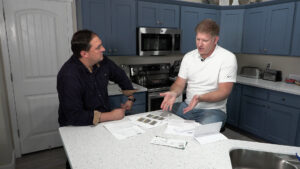
Eric Prettyman shows Matt Gephardt the letter he received from a car rental company saying he was responsible for over $1,400 in damage he says he did not cause. (Meghan Thackrey/KSL TV)
Prettyman said he took pics of the minivan with his phone before it got hauled off, but deleted those a month later, never dreaming National would hound him four months later.
“For me, it’s like, why are you coming after me? Everything was fine with the van when it got towed away,” he said. “Why are you not talking with the tow company? Why are you not talking with whomever repaired the tire? They’re the ones that caused the damage. Instead of putting all this weight and pressure on me, put it on whoever did the damage.”
Despite his numerous calls and demands for proof he was responsible, the company refused to budge.
“At the end of the investigation, all I got was a letter saying, ‘We still deem you responsible because you signed the original agreement and you now have to pay us,’ and that was it,” he said.
That was not it for Prettyman. He decided it was time to Get Gephardt.
‘A bit dodgy.’
“I would say that definitely sounds a bit dodgy,” said Jonathan Weinberg, CEO of online car rental broker, AutoSlash.
Weinberg said he understands why a rental car company could take weeks or even longer to charge a customer for dings.
“Rental car companies are overextended in many cases. These damage claims go into a pile, so to speak, and then someone has to inspect that, and an adjuster has to look at it, and then the car goes to a body shop, and then the estimate comes back,” he explained.
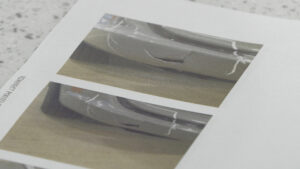
The rental car company sent Prettyman photos of damage to the vehicle he had rented four months earlier. He argues the photos don’t prove he’s responsible. (Meghan Thackrey/KSL TV
But a surprise bill four months later, he says, shouldn’t happen.
“There should be transparency in the process all the way through,” he said.
Weinberg said if the rental car company dispatched the tow truck, you should not be responsible for what happens to the car after it gets hauled off. However, if you call a tow company on your own, you could be held responsible for anything that happens to that car.
Document, document, document
If a rental company is trying to charge you for damage that they have little or no proof you are responsible for, Weinberg said to ask for a detailed description of the damage and timestamped photos, as well as the repair bill. Ask for the car’s utilization log. That will show if and how many times it was rented after you.
If the rental company waited months to send a damage claim and they have rented the car out many times since you drove it, they should have to prove that it was you that actually caused the damage.
The best way to protect yourself: document, document, document.
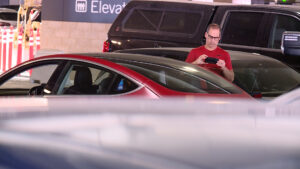
Rental car industry experts says your best defense against surprise repair bills is to document everything, and take pictures and video when you pick up the vehicle and when you return it. (Jeff Dahdah, KSL TV)
“That means taking pictures, taking video, inspecting the car thoroughly before you leave the lot,” Weinberg said. “And that means if there is an issue, do exactly the same thing. Document exactly what happened. Document who you spoke to, when you spoke with them. Even record the conversations if it’s possible to record. At least keep a diary of exactly what time you call them. You can take screenshots of your phone logs if you need to provide proof. So, you just cannot have enough documentation.”
And hold onto everything for at least six months.
“If your phone is not automatically backed up to cloud photo storage, then definitely put it in a safe place,” Weinberg said. “Anything after six months, the renter pretty much has a pretty good case to the rental car company that it is kind of ridiculous at that point.”
Change of heart
KSL Investigates reached out to National’s parent company, Enterprise Holdings, to ask what proof they had the Prettyman family damaged the minivan. In an emailed statement, they said the damage was not there when the family rented it, yet it was clearly there when it was returned. But after our communication, they are having a change of heart.
In a statement to KSL, Enterprise Holdings wrote, “…given the uncertainty around when and how the damage occurred, the local branch in Hawaii has decided to drop the claim against the renter.”
And just like that, Prettyman is free from paying the pricey repair bill. For him, though, the damage is done. He said he would not rent from National again.
“I never even thought, ever once, that this would be a possibility of what could happen when you rent a car,” he said.
Avoid after hours
Weinberg strongly discourages people from dropping off their rentals after hours. Anytime you do that, you are responsible for anything that happens to that car until the location opens and inspects it.
“If you drop off a car at six o’clock in the morning and the office doesn’t open until eight, and someone damages the vehicle – maybe someone backs into it after you dropped it off – technically, you’re responsible for that,” he explained.
If you just cannot avoid an after-hours drop, again, documentation will be your friend.
“If you can have a date and timestamp photo that shows that the vehicle was in good condition when you dropped it off, and you can see the rental office in the background, and you can tell exactly where that vehicle was left and at what time, that’s a great defense in case something was to happen to the vehicle prior to them checking it in.”


